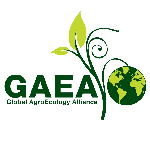 Morgan Ruelle Feb 11, 2015 12:46 |
Dear Global AgroEcology Alliance,
Thank you so much for this exciting proposal. You have clearly given this a lot of thought. Your commitment to ethical research that builds on local and indigenous knowledge shines through. I am particularly happy that you have incorporated the gender component from the proposal by staplets, and I encourage you to collaborate with her if you think that key elements of your proposals could fit together.
For now, I have some questions about the project outputs. These are not meant as suggestions, rather some unresolved questions that arose as I read your proposal. First, is there something lost when we represent the calendar as a document? Once such a calendar is printed, won't it be hard to overcoming the notion that it is static and singular (as opposed to dynamic and diverse)? Second, while I agree with you that the Gregorian and Julian calendars are important because they are familiar, what do we gain by referring back to those calendars with respect to calendars of the human body? Might we gain some new perspectives by letting go of these reference points and trying to understand temporal relationships within an agroecosystem, rather than mediating everything through movement of the earth, sun, moon, stars? Of course, the Pamiris have interacted with all sorts of calendars, including those of Islam, China, Russia, etc., for thousands of years, and the calendars of the human body have persisted, so my question isn't about purity or isolation, it's about the way we perceive time. I'm thinking of the way that time is flexible, supple, alive in the calendars of the human body whereas I feel it is mechanistic, instrumental, and commodified in my own culture. I think this has something to do with ecological as opposed to astronomical baselines.
I'd appreciate your thoughts! Thanks again, and I look forward to seeing this develop further!
Yours,
Morgan
|
 Simon Riley Feb 19, 2015 12:14 | Proposal contributor
Hi Morgan,
Thanks so much for your feedback - it is really great food for thought - and we look forward to getting a lively discussion going on these topics. It has been quite a challenge for us expressing our thoughts clearly on such a fascinatingly complex and nuanced subject while staying within the character limits! Without a doubt, further discussion and feedback will help us to develop, refine and clarify our ideas.
Firstly, it is certainly true that something might be lost once the calendars are presented in the form of documents. Despite our intention to make every possible effort at accommodating the diversity of different variations of the calendars and local languages, it is fair to expect some negative impact on the dynamism (or perception of dynamism) within this system. With that said, any approach or intervention is likely to carry some trade-offs, and we felt this approach offered a lot in facilitating adoption (or re-adoption) as well as to encouraging widespread engagement with the project. From our experiences in both Sri Lanka and Nepal, we've seen many homes where virtually the only decorations on the walls were a religious ornament and one or more wall calendars. Often the calendars were many years old; they were hung up because they were useful and free but kept up simply because they were attractive.
With regards to your second point, it certainly isn't the aim to mediate the one calendar entirely through the other by overlaying the body calendar on top of the Gregorian. The ambition is rather to present the two systems together, but as independent and parallel, as the first step towards "letting go of these reference points and trying to understand temporal relationships within an agroecosystem". A useful metaphor might be language learning, where initially one must mediate the second language, at least to some degree, through the mother tongue (i.e. translate words and phrases). Over time, however, greater fluency is achieved and the new language gains internal coherency, nuance and connotation in the mind of the speaker which is understood independently of any other language. Ultimately, the two languages exist as separate wholes operating in parallel, each serving essentially the same purpose but still uniquely suited to use in different contexts.
Thanks again for your feedback!
Warm Regards,
GAEA
|
 Morgan Ruelle Mar 4, 2015 05:05 |
Hi GAEA,
Thank you for your insightful response to my questions! You have made several great points! I wanted to let you know that Climate CoLab has expanded the 'Summary' field to 4000 characters so that you can incorporate some of these nuanced ideas into your proposal.
Best,
Morgan
|
 Gabriel Harp Mar 31, 2015 05:54 |
I'd love to see some visual examples that could serve as inspiration for the project. It's true, wall calendars are ubiquitous. I wonder what kind of design principles could guide the process of making an engaging, informative, dynamic, and actionable artifact like this.
|
 Natasha Udu-gama Apr 17, 2015 09:12 |
Hi Global AgroEcology Alliance,
29 days until this contest ends! At this point, I would encourage you to start fine-tuning your proposal. We now have an amazing set of judges from the National Consortium for Atmospheric Research (Dr. Greg Holland), The University of Maryland (Dr. Surya Sharma), College of the Atlantic (Dr. Doreen Stabinsky) and The Lowlander Center (Dr. Kristina Peterson) not to mention, our two esteemed advisors. Please see: https://www.climatecolab.org/web/guest/plans/-/plans/contestId/1301102.
I hope your proposal will wow them!
Best of luck!
Natasha
|
 Morgan Ruelle Apr 26, 2015 11:51 |
20 days left to iron out your proposal! Don’t forget to share with your networks to maximize discussion before the deadline! Click on "Share conversation" at the top of this page!
|
 Morgan Ruelle May 1, 2015 09:36 |
15 days left to ensure all content on your proposal is as detailed and accurate as possible! Share your proposal on Facebook, Twitter, LinkedIn or send an email to colleagues asking for comments on your ideas!
|
 Morgan Ruelle May 13, 2015 06:01 |
3 days left until the judges will read through your proposal! Take this chance to invite others to weigh-in and ensure your proposal is as comprehensive and accurate as possible! Now is the time to make any last minute changes!
|
 Dimitrios Argyriou May 19, 2015 12:12 |
Guys you have made a really nice job and a thorough proposal. No surprises that It was the most voted proposal. I really hope you find the funds and get a chance to develop it further.
Good luck with it!
Dimitris
|
